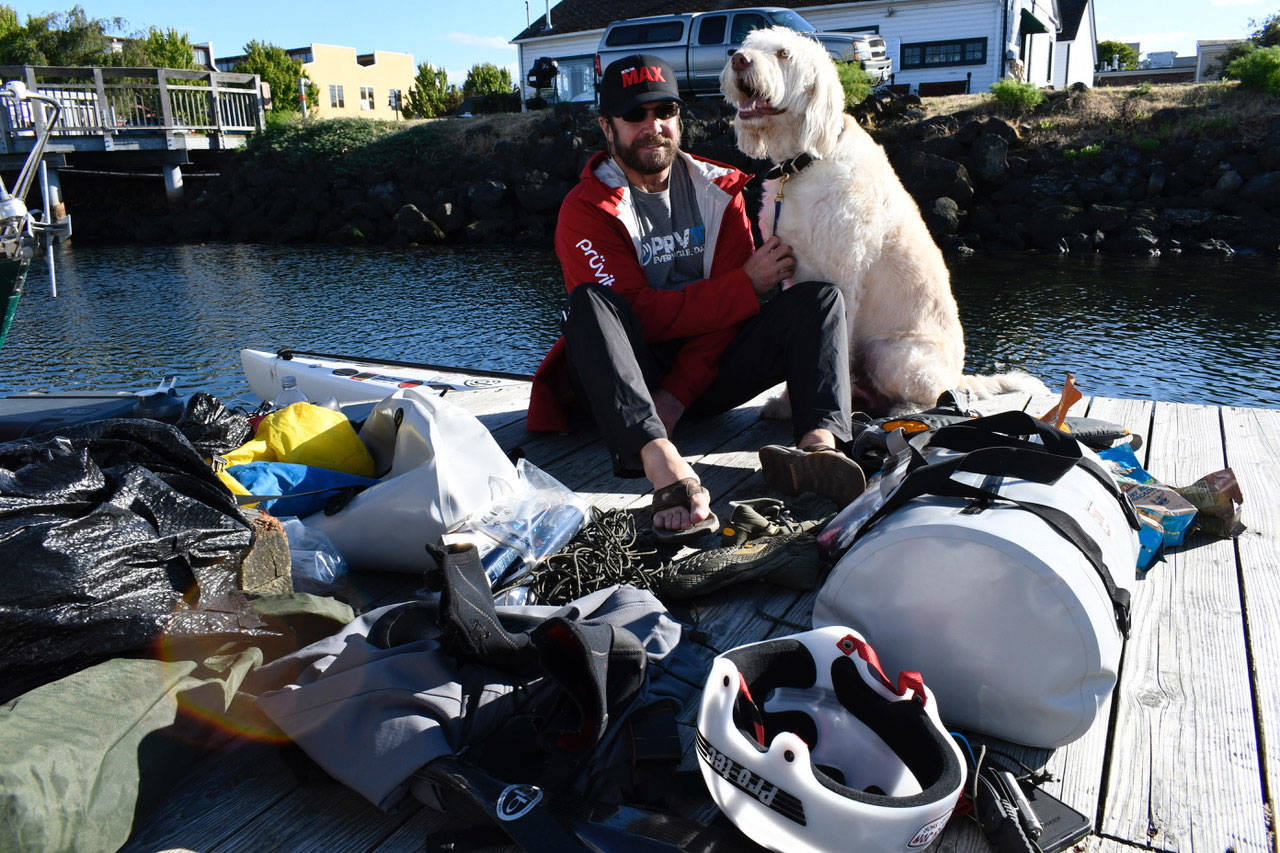PORT TOWNSEND — The inside passage to Ketchikan, Alaska soon will be filled with dreamers set upon winning a race that rewards first place with $10,000 and second place with a set of steak knives.
The Race to Alaska (R2AK) begins Thursday morning at 5 a.m. and 36 hungry teams are slated to make the 750-mile trip without engines, only sails or human power.
There are also eight teams that will try only the “proving ground,” the first leg of the race to Victoria, B.C. through the Salish Sea.
On Sunday, those who are ready will leave the docks in front of the Empress Hotel and head north into an unknown mix of sea, elements and personal survival.
The popular free Ruckus event will kick off R2AK activities at noon today. Teams will show off their boats and discuss their strategies with the public at Pope Marine Park. Free clinics will be offered by Jefferson Healthcare on skin care, wound care and concussion protocols.
At 4 p.m., legends in the stand-up paddleboarding community will hold a discussion, with Tickets costing $10. At 5 p.m., Uncle Funk & the Dope 6 will perform until 8 p.m.
At 6:30 p.m. the Seventy48 fastest team award will be presented to winners Greg Barton and Kevin Olney of Team Epic, who finished the inaugural event in 9 hours and 39 minutes after the start 70 miles south in Tacoma.
R2AK is in its fourth year and has grown in popularity all over the world. Competitors are from across the U.S., Australia, British Columbia, and France.
Northwest Maritime Center Executive Director Jake Beattie said the race has gone though an evolution.
“This year, R2AK is closer to what we imagined it would be,” Beattie said. “People are doing it for their own personal reasons. There is no clear favorite. No real fast boat with an Olympian team. Just solid sailors with solid boats.”
Race Boss Daniel Evans said the vetting process this year made acceptance ever stricter.
“We gave out a few more no’s than we have before,” Evans said. “All competitors are quite solid. There are a few fast boats, the multi-hulls, but there is no obvious victor.”
Beattie believes there are eight or nine teams that could claim the top spot.
“There are eight women from Bainbridge Island sailing a Melges 32. They won the First Federal sponsorship challenge. There are five young people under 21 out of Portland in Team BlueFlash. There is Team Dreamcatcher, a father-in-law and his two sons-in-law from Piedmont, California.”
Beattie said the fastest boat is a trimaran, delivered in a container on May 26 and assembled in the past two weeks.
“Team Wright Yachts’ three team members are bolting it together now and figuring out how to sail it,” he said. “And it’s already for sale. It will be a slightly used boat in a few weeks.”
There are some impressive personal stories of survival that mirror the sheer grit that’s needed to participate in this event.
Stand-up paddleboarder Josh Collins of Team Torrant is from Merritt Island, Fla. He was in special ops in the military and suffered nine traumatic brain injuries (TBI) that left him with balance issues, ear damage, nerve damage and a host of other issues including PTSD.
Collins had to choose to overcome his limitations or stay stuck in a mire of pharmaceuticals and depression. He chose to get on with his life and bring attention to TBI by padding from Texas to the Statue of Liberty in 2016: 2,600 miles in 140 days. He had 20,000 Facebook followers rooting for him.
Last year, Collins successfully completed the first leg of R2AK. This year, he plans to go all the way, again bringing awareness to his TBI mission.
Steve Rhodes of Bainbridge Island is a street minister who raises money and awareness for the homeless population in recovery. Even his team name, Team Extreme Sobriety, is focused on what he does.
The former cocaine addict has a new purpose. He plans to ride prone on a paddleboard as far as he can go, as long as it takes. Then he’ll drop his board, grab a bike in Ketchikan and cycle across Canada to raise funds for his life’s work.
Doug Shoup of Sedro Woolley wasn’t accepted into R2AK when he first applied in November. Shoup had limited nautical experience and a boat that wasn’t really cut out for the Alaskan waters. He also had a frame of more than 300 pounds. Shoup persevered and, in six months, dropped close to 100 pounds. He’s been training on a Hobie Mirage that has a paddle as a backup. He’s more than ready.
“This is the human spirit — this is the year of the ‘every man is hero’,” Beattie said.
________
Jefferson County Editor/Reporter Jeannie McMacken can be reached at 360-385-2335 or a jmcmacken@peninsuladailynews.com.

